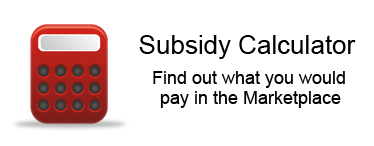 An article from the Kaiser Family Foundation highlights an unintended consequence of the Patient Protection and Affordable Care Act’s (PPACA) evolution after the U.S. Supreme Court’s decision in the summer of 2012 – a “coverage gap” for low income adults who are not eligible for Medicaid, but who do not make enough money to qualify for premium tax credits or cost-sharing subsidies. As originally drafted, PPACA required states to expand Medicaid to include individuals with incomes up to 133% of the Federal Poverty Level. However, the Supreme Court’s decision made this Medicaid expansion optional, resulting in 26 states declining to expand their Medicaid programs. For example, in North Carolina, Medicaid eligibility* is still restricted to the following:
An article from the Kaiser Family Foundation highlights an unintended consequence of the Patient Protection and Affordable Care Act’s (PPACA) evolution after the U.S. Supreme Court’s decision in the summer of 2012 – a “coverage gap” for low income adults who are not eligible for Medicaid, but who do not make enough money to qualify for premium tax credits or cost-sharing subsidies. As originally drafted, PPACA required states to expand Medicaid to include individuals with incomes up to 133% of the Federal Poverty Level. However, the Supreme Court’s decision made this Medicaid expansion optional, resulting in 26 states declining to expand their Medicaid programs. For example, in North Carolina, Medicaid eligibility* is still restricted to the following:
- Aged, blind or disabled;
- Infants, children and families;
- Long-term care; and
- Medicare recipients.
*Click here for the N.C. Medicaid Eligibility Chart
So what is the result? Childless, low income adults will be impacted the most. Individuals with household incomes between 100% and 400% of the Federal Poverty Level may be eligible for premium tax credits or cost-sharing subsidies for coverage purchased through a health insurance Marketplace if they do not have access to other minimum essential coverage. Currently, 100% of the Federal Poverty Level for 2013 is $11,490. A childless adult making less than $11,490 will not qualify for Medicaid because they do not meet the Medicaid eligibility requirements, at least in North Carolina. And, because the adult’s income is less than 100% of the Federal Poverty Level, they also will not qualify for premium tax credits or cost-sharing subsidies. An adult in this situation would be left with limited options: (1) going without coverage; (2) paying the full premium for a health plan through the Marketplace; or (3) enrolling in employer-sponsored coverage, if employed and eligible for the employer’s benefits. Although these options are not very appealing, the U.S. Department of Health and Human Services (HHS) has made an accomodation. In a final rule published on June 26, 2013, HHS provided an exemption from the individual mandate tax penalty for individuals ineligible for Medicaid solely because a state declined to expand Medicaid under PPACA.
Some of the states that have not expanded Medicaid may do so at a later date. Until then, this coverage gap could only be remedied by legislative action.


